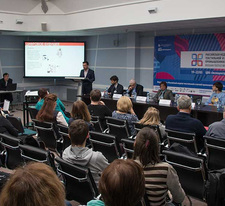Difficulties of digitalization of business
According to research, over the past 2 years every fourth company has failed in the digital transformation of its business.
The study, which was attended by representatives of 1,625 companies, demonstrates that companies face difficulties in implementing 4 strategic elements necessary for digital transformation: people, actions, cooperation and technology.

Although companies around the world recognize the importance of digital transformation, they struggle to balance the elements necessary for the transition to digital technologies. Of the 1,625 business leaders who took part in the study, 33% said that over the past 2 years they have closed projects worth 423,000 euros, and 28% of respondents failed with projects worth 555,000 euros. 84% of the survey participants said that their customers want the company to use digital technologies more actively, and 71% believe that they are lagging behind competitors. 72% of companies claim that "shadow" digital projects are the only way they can innovate. Finally, 66% of respondents believe that they will lose their customers as a result of digital transformation.

Digital transformation is not limited to digital technologies alone. The Fujitsu study assesses how modern companies take into account in their work 4 strategic elements necessary for digital transformation: People, actions, cooperation and technology (People, Actions, Collaboration and Technology (PACT)). Companies are well aware of the importance of digital transformation: the majority of companies (46%) have already implemented transformation projects, and 86% said that they plan to implement such initiatives in the next 12 months. Nevertheless, companies continue to face difficulties when working with the 4 basic elements (PACT).
PEOPLE
When assessing the approach to people involved in the process of digital transformation, most company managers (90%) take measures to increase the number of specialists with extensive experience in the field of IT, however, 70% of respondents admit that there is a shortage of qualified employees in their companies. Thus, 80% of the survey participants claim that the lack of necessary skills in the company is the main difficulty in ensuring reliable information security. In the future, qualified specialists will continue to play an important role for companies. 93% of survey participants stated that staff development will be important for their companies in the next 3 years, and 83% of respondents believe that artificial intelligence will change the professional skills that will be needed in 2020.

ACTIONS
Speaking about actions as processes and operations necessary for digital transformation, 90% of respondents state that their companies have a clearly defined strategy for implementing digital technologies, and 83% are confident that other companies know what it is. Nevertheless, 74% of participants say that projects are often implemented that are not related to the overall business strategy, and another 72% say that "shadow" digital projects are the only way companies can innovate. 66% of company executives say that financial losses from unsuccessful projects have distanced them from digital transformation in the future.
COLLABORATION
Company executives positively consider the possibility of working together: most companies are implementing or planning to implement joint projects (63%), projects with partners, including experts in the field of advanced technologies (64%), and projects with existing customers (42%). Surprisingly, 79% of respondents are even willing to share their confidential information within the framework of such joint initiatives. However, 73% say that the lack of positive results in the short term will lead to the fact that partner projects will be closed.

TECHNOLOGIES
As for technology, company executives plan to implement a number of systems in the next 12 months: 52% of respondents plan to install systems to ensure information security, 51% - solutions based on the Internet of Things, 47% - cloud computing technologies and 46% - systems based on artificial intelligence. Managers are well aware of the importance of changes associated with the introduction of digital technologies, and 86% say that the ability to change the usual principles of work will be critical to the success of the company in the next 5 years. However, 71% of respondents are concerned about the ability of their business to adapt to new technologies, including artificial intelligence.
The emergence of new technologies in business has always been associated with the need for their balanced use. And as technology transformation picks up pace, the issue of balanced use is becoming increasingly important. It is no longer enough for companies to use only the most modern and effective applications and devices; they will be useless without talented people who can realize their full potential. You may have the brightest and most progressive employees, but without innovation they may be useless. And no company, no matter how big, influential or powerful it is, will be able to work and achieve success in the future. Only by combining all these elements of people, actions, collaboration and technology will companies succeed in the digital world.
Photo: shutterstock.com











